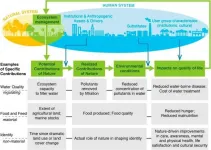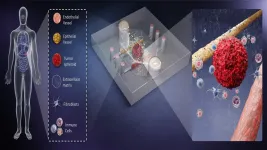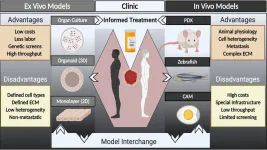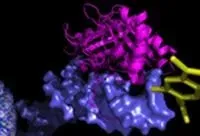(Press-News.org) Vaccinating older adults for COVID-19 first will save substantially more U.S. lives than prioritizing other age groups, and the slower the vaccine rollout and more widespread the virus, the more critical it is to bring them to the front of the line.
That's one key takeaway from a new University of Colorado Boulder paper, published today in the journal Science, which uses mathematical modeling to make projections about how different distribution strategies would play out in countries around the globe.
The research has already informed policy recommendations by the Centers for Disease Control and the World Health Organization to prioritize older adults after medical workers.
Now, as policymakers decide how and whether to carry out that advice, the paper--which includes an interactive tool--presents the numbers behind the tough decision.
"Common sense would suggest you want to protect the older, most vulnerable people in the population first. But common sense also suggests you want to first protect front-line essential workers (like grocery store clerks and teachers) who are at higher risk of exposure," said senior author Daniel Larremore, a computational biologist in the Department of Computer Science and CU Boulder's BioFrontiers Institute. "When common sense leads you in two different directions, math can help you decide."
For the study, Larremore and lead author Kate Bubar, a graduate student in the Department of Applied Mathematics, teamed up with colleagues at the Harvard T.H. Chan School of Public Health and the University of Chicago.
They drew on demographic information from different countries, as well as up-to-date data on how many people have already tested positive for COVID-19, how quickly the virus is spreading, how fast vaccines are rolling out and their estimated efficacy.
Then they modeled what would happen in five different scenarios in which a different group got vaccinated first: Children and teenagers; adults ages 20 to 49; adults 20 or older; or adults 60 or older (considering that about 30% of those eligible might decline). In the fifth scenario, anyone who wanted a vaccine got one while supplies lasted.
Results from the United States, Belgium, Brazil, China, India, Poland, South Africa, Spain and Zimbabwe are included in the paper, with more countries included in the online tool.
Different strategies worked better or worse, depending on local circumstances, but a few key findings jumped out.
In most scenarios, across countries, prioritizing adults 60+ saved the most lives.
"Age is the strongest predictor of vulnerability," said Larremore, noting that while pre-existing conditions like asthma boost risk of severe illness or death, age boosts vulnerability more. "You have an exponentially higher likelihood of dying from COVID-19 as you get older."
The authors also note that, while the vaccines being distributed now are believed to have about a 90 to 95% chance of protecting against severe disease, researchers don't yet know how well they block infection and transmission. If they don't block it well and asymptomatic spreaders abound, it again makes the most sense to vaccinate older adults. If nothing else, they'll be personally protected against grave disease.
Only in scenarios where the virus is under control and the vaccine is known to block infection and transmission well does it make sense to move younger adults to the front of the line. That is not the situation in the United States right now.
"For essential workers who might be frustrated that they are not first, we hope this study offers some clarity," said Bubar. "We realize it is a big sacrifice for them to make but our study shows it will save lives."
So will a faster rollout, they found.
For instance, all other things being equal, if the rollout speed was to be doubled from current rates under current transmission conditions, COVID-19 mortality could be reduced by about 23%, or 65,000 lives, over the next three months.
The paper also suggests that in some situations where COVID has already infected large swaths of the population and vaccine is in short supply, it might make sense to ask younger adults who have already tested positive to step to the back of the line.
"Our research suggests that prioritizing people who have not yet had COVID could allow hard-hit communities to stretch those first doses further and possibly get to some of the herd immunity effects sooner," said Larremore.
The authors stress that vaccines alone are not the only tactic for helping win the race against COVID.
"To allow the vaccine to get to folks before the virus does, we need to not only roll out the vaccine quickly and get it to the most vulnerable people. We have to also keep our foot on the virus brake with masks, distancing and smart policies," said Larremore.
INFORMATION:
It is no secret that over the last few decades, humans have changed nature at an ever-increasing rate. A growing collection of research covers the many ways this is impacting our quality of life, from air quality to nutrition and income. To better understand how which areas are most at risk, scientists have combed through volumes of literature to present global trends in the relationship between human wellbeing and environmental degradation.
Their work, which included Fabrice DeClerck from the Alliance of Bioversity International and CIAT, was summarized in "Global trends in nature's contributions to people", which was recently published in Proceedings of the National Academy of Sciences.
This systematic ...
WASHINGTON, January 21, 2021 -- Despite cancer being a leading cause of death worldwide, treatment options for many types of cancers remain limited. This is partly due to the in vitro tools used to model cancers, which cannot adequately predict the behavior of a cancer or its sensitivity to drugs.
Further, animal models, like mice, biologically differ from humans in ways that play a critical role in immunotherapy, and results from animal studies do not always translate well to human disease.
These shortcomings point to a clear need for a better, patient-specific model to improve the understanding of cancer cells and their impacts.
Researchers from the University of Wisconsin and the University ...
Medicated drops may help close small macular holes over a two- to eight-week period, allowing some people to avoid surgery to fix the vision problem, a new study suggests.
The findings, based on a retrospective multicenter case series published Dec. 15, 2020, in Ophthalmology Retina, could lead to a better understanding of which patients may benefit from the treatment, as well as the timeline of the treatment's effectiveness.
"For certain patients, medicated drops may heal their macular hole by decreasing inflammation and increasing fluid absorption in the retina," said ophthalmologist and retinal surgeon Dimitra Skondra, MD, PhD, senior author of the study. Skondra is an associate professor of ophthalmology and visual ...
WASHINGTON, January 21, 2021 -- Cancer is a major, worldwide challenge, and its impact is projected to escalate due to aging and growth of the population. Researchers recognize that new approaches to diagnose and treat deadly cancers, including identifying new drugs to treat cancer, will be essential to curbing the growing impact of the disease.
While decades of investment in research have resulted in substantial improvements in surviving cancer, a key challenge remains in identifying new drugs that improve outcomes for cancer patients, particularly for cancers when tumors have spread throughout the body.
In APL Bioengineering, by AIP Publishing, researchers suggest a major hurdle to identifying new drugs is the paucity of models -- organisms ...
EUGENE, Ore. -- Jan. 21, 2021 -- Developing economies suffer from a paradox: they don't receive investment flows from developed economies because they lack stability and high-quality financial and lawmaking institutions, but they can't develop those institutions without foreign funds.
A study co-authored by Brandon Julio, a professor in the Department of Finance at the University of Oregon's Lundquist College of Business, found that bilateral investment treaties, commonly known as BITs, can help developing economies overcome this paradox, but only as long as those ...
Researchers at Vanderbilt University Medical Center and colleagues have identified genetic factors that increase the risk for developing pneumonia and its severe, life-threatening consequences.
Their findings, published recently in the American Journal of Human Genetics, may aid efforts to identify patients with COVID-19 at greatest risk for pneumonia, and enable earlier interventions to prevent severe illness and death.
Despite the increasing availability of COVID-19 vaccines, it will take months to inoculate enough people to bring the pandemic under control, experts predict. In the meantime, thousands of Americans are hospitalized and die from COVID-19 each ...
A new study from researchers at MIT uncovers the kinds of infrastructure improvements that would make the biggest difference in increasing the number of electric cars on the road, a key step toward reducing greenhouse gas emissions from transportation.
The researchers found that installing charging stations on residential streets, rather than just in central locations such as shopping malls, could have an outsized benefit. They also found that adding on high-speed charging stations along highways and making supplementary vehicles more easily available to people who need to travel beyond the single-charge range of their electric vehicles could greatly increase the vehicle electrification potential.
The findings are reported today in the journal Nature Energy, in a paper by MIT associate ...
DAVIS, Calif., January 21, 2020 - A new peer-reviewed study reveals that the vast majority of U.S. infants may be suffering from a substantial deficiency in an important bacterium key to breast milk utilization and immune system development, as well as protection against gut pathogens linked to common newborn conditions such as colic and diaper rash.
According to the study published today in END ...
Sex-specific chromosomes are a dangerous place to be, if you're a gene. Because these chromosomes -- Y chromosomes, in humans -- do not have a matching chromosome with which to exchange genetic information, they are prone to losing non-essential genes left and right in a process called genetic decay.
Now, a new study from research scientist Daniel Winston Bellott in the lab of Whitehead Institute Member David Page broadens our understanding of what makes a gene able to survive on a sex-specific chromosome by looking at one especially slithery branch of the evolutionary tree: snakes.
Comparing surviving genes on snake ...
PHILADELPHIA -- (Jan. 21, 2021) -- Researchers at The Wistar Institute have discovered a new enzymatic function of the Epstein-Barr Virus (EBV) protein EBNA1, a critical factor in EBV's ability to transform human cells and cause cancer. Published in Cell, this study provides new indications for inhibiting EBNA1 function, opening up fresh avenues for development of therapies to treat EBV-associated cancers.
EBV establishes life-long, latent infection in B lymphocytes, which can contribute to development of different cancer types, including Burkitt's lymphoma, nasopharyngeal carcinoma (NPC) and Hodgkin's lymphoma.
The Epstein-Barr Nuclear Antigen 1 (EBNA1) serves as an attractive therapeutic ...






